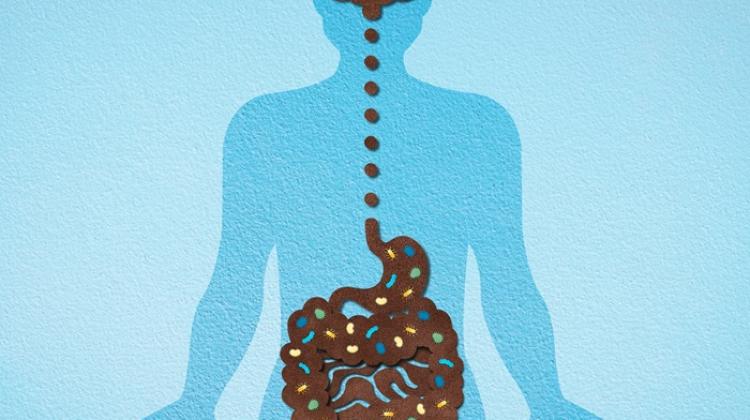Researcher investigates whether ketogenic diet is safe
 Credit: Adobe Stock
Credit: Adobe Stock
The increasing popularity of the ketogenic diet does not go hand in hand with scientific knowledge about the safety of its use, say scientists.
The ketogenic diet is a high-fat, low-carbohydrate diet that puts the body into a state of ketosis. 'It is quite a demanding diet, but it gives quick results and allows you to get rid of unwanted kilograms in a short time. That is why it has become so fashionable and popular in recent years,’ says Dr. Natalia Drabińska from the Institute of Animal Reproduction and Food Research of the Polish Academy of Sciences in Olsztyn, who studies the impact of the ketogenic diet on metabolism, inflammation, selected nutritional parameters and oxidative stress in overweight and obese women.
This, however, does not mean that the ketogenic diet is well understood scientifically. A lot of information published online about the impact of this diet on the human body is still not confirmed by scientific research. 'Although the available scientific literature indicates that ketogenic diet may be beneficial when it comes to reducing body weight, there is no comprehensive research to ensure the safety of its use,’ Drabińska says.
In order to fill this gap, the scientist - as part of a project financed by the Polish National Science Centre - investigates how the ketogenic diet affects metabolism, inflammation, selected nutritional parameters and oxidative stress in overweight and obese women.
The first of the examined relationships is the impact of the ketogenic diet on metabolism, i.e. all the biochemical processes taking place in the body that convert the nutrients from food into energy.
The next step will be to investigate the impact of the ketogenic diet on inflammation - for example, whether and how it can reduce it.
When it comes to the impact of the ketogenic diet on selected nutritional parameters, the scientist will examine the level of fat-soluble vitamins, i.e. vitamins A, D, E and K, and determine the amino acid profile and fatty acid profile.
The impact of the ketogenic diet on oxidative stress will be determined based on the level of antioxidant activity - what increases it in the diet and how the body responds to it; the level of enzymes involved in the neutralization of free radicals and the level of lipid and nucleic acid peroxidation products. 'My previous research on animals showed that the ketogenic diet, even in a rather extreme form, did not cause oxidative stress, but actually reduced it,’ Dr. Drabińska says.
'We have already completed most of the research and started analysing results. They will allow us to answer the questions asked by many people struggling with obesity and overweight, wondering whether the ketogenic diet is a safe and effective way to fight excess weight,’ she adds.
The research group consisted of 80 women (72 completed the study) - healthy, slightly overweight (BMI 25.5-35), on average aged 35-40; they were volunteers from Olsztyn and the surrounding areas. For eight weeks, the women received balanced meals every day, provided by dietary catering, and regularly underwent examinations. 'All the participants are satisfied with the effects of this diet, because they lost a total of 380 kg,’ says Drabińska who also went on the diet.
The ketogenic diet involves balancing meals so that the majority of calories come from fats and the consumption of carbohydrates is as limited as possible. Interestingly, the ketogenic diet was originally used to treat patients with drug-resistant epilepsy.
After 4-6 weeks of adaptation to such a diet, the body enters the state of ketosis, i.e. it 'switches' to drawing energy from ketone bodies (fat accumulated in the tissues) and not - as before - from sugars (glucose).
'You need patience before this happens, because in the first weeks the ketogenic diet may make you feel worse. When the glucose in your body runs out and your body is not yet able to use ketone bodies, you lose strength and may experience flu-like symptoms. Especially then, you should remember to drink a lot of water and keep an eye on the appropriate level of electrolytes. In the beginning, I also recommend supplementing with MCT oil - it is an oil containing medium-chain acids that go directly to the liver (without passing through the pancreas) and are converted there into ketone bodies,’ the researcher says.
She adds that each diet should be followed carefully and consciously. In some situations, it is necessary to seek medical advice because a high-fat diet should not be used, for example, by people who have kidney or liver problems.
'Remember that this is a diet based mainly on fat, which is metabolised by the liver. Therefore, loading it with a high-fat diet in sick people may be dangerous to health. Therefore, before starting the diet, it is worth doing a liver panel (ALT, AST, GGTP) and checking kidney parameters, such as uric acid, the level of which increases especially at the beginning of the ketogenic diet,’ she says.
The ketogenic diet is an elimination diet, so it is important to ensure its diversity and balance. 'The ketogenic diet is not meat dripping with fat, but primarily healthy fat coming from products such as eggs, avocado, nuts, olive oil and selected fruits and vegetables, says Dr. Drabińska.
The researcher adds that according to current scientific knowledge, there are no contraindications to the long-term use of the ketogenic diet.
(PAP)
Agnieszka Libudzka
ali/ bar/ kap/
tr. RL
Przed dodaniem komentarza prosimy o zapoznanie z Regulaminem forum serwisu Nauka w Polsce.


















